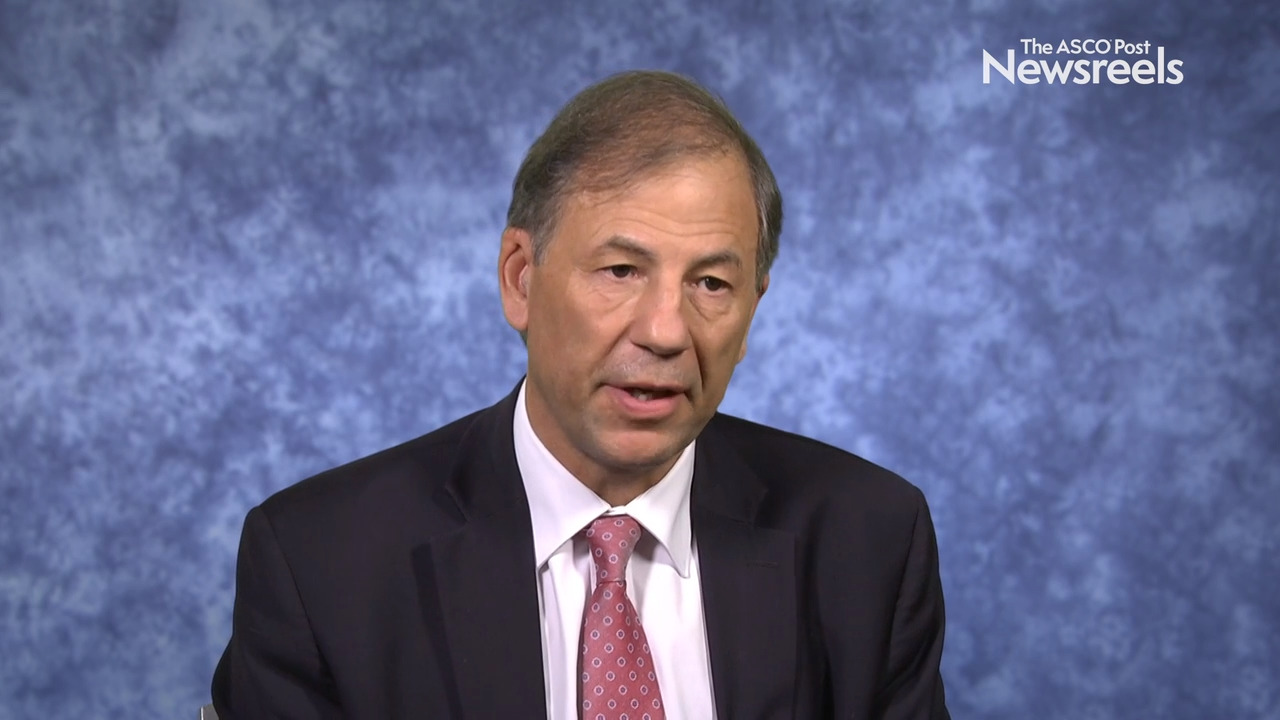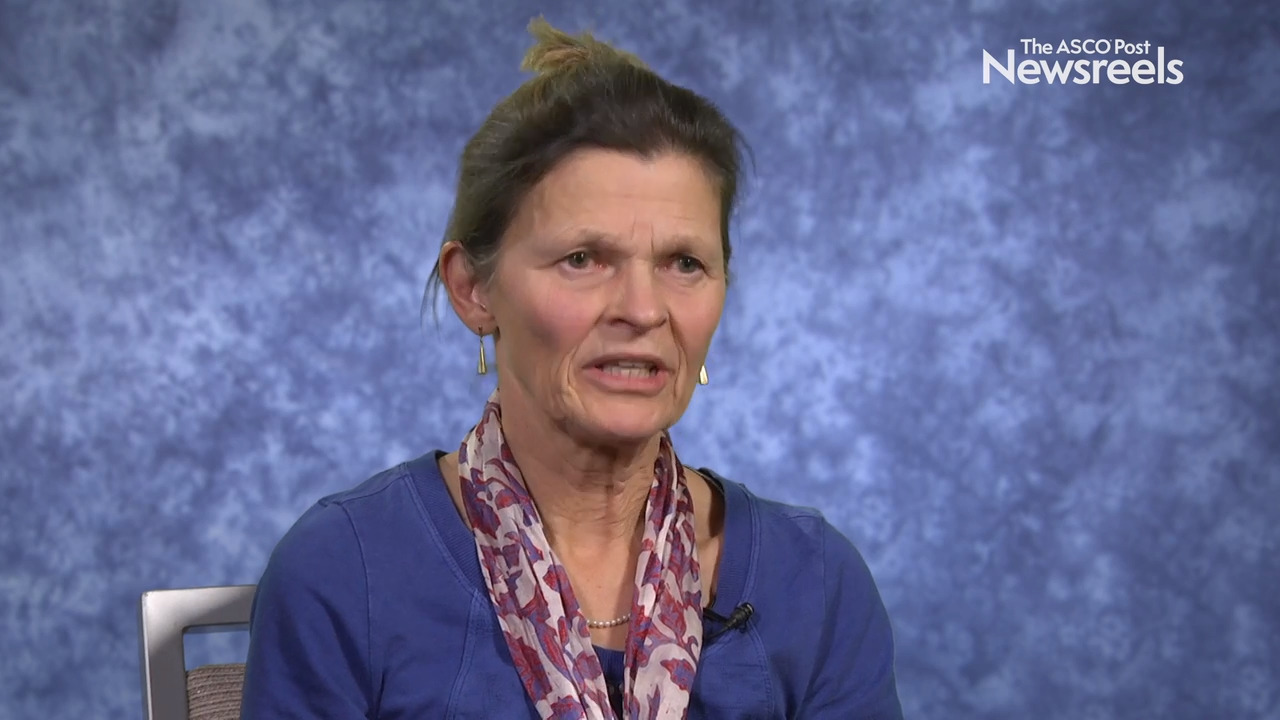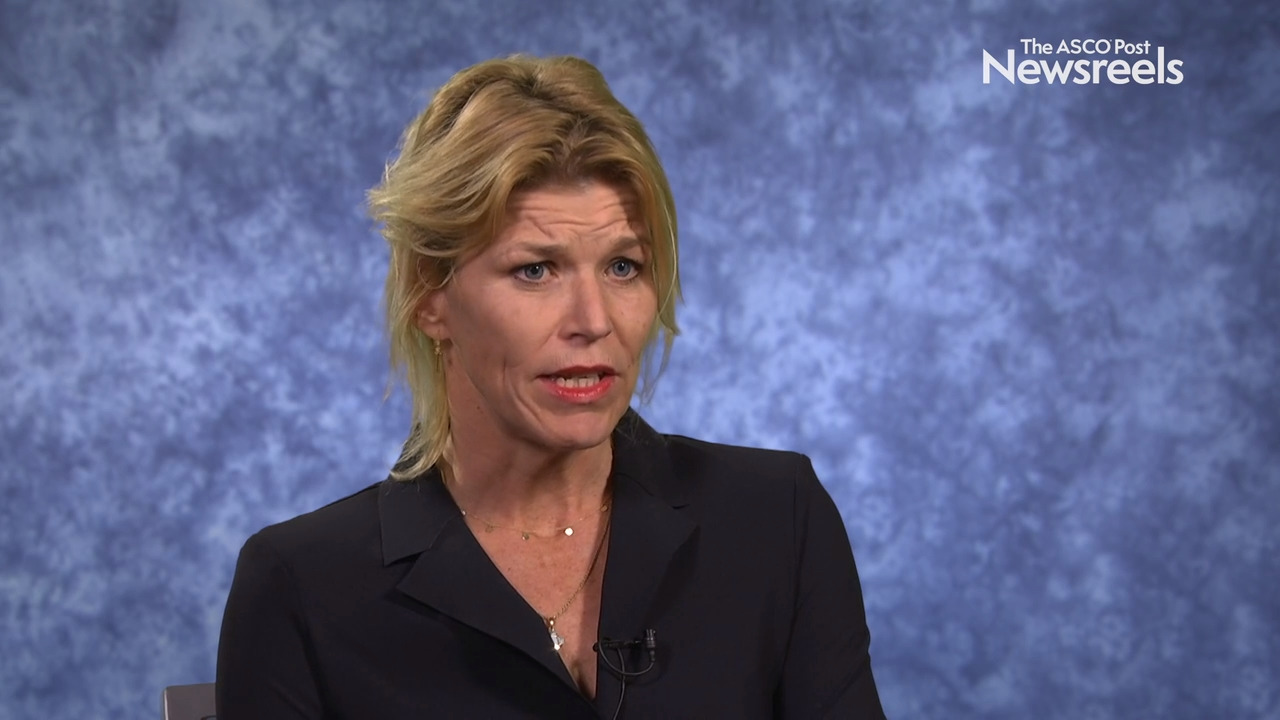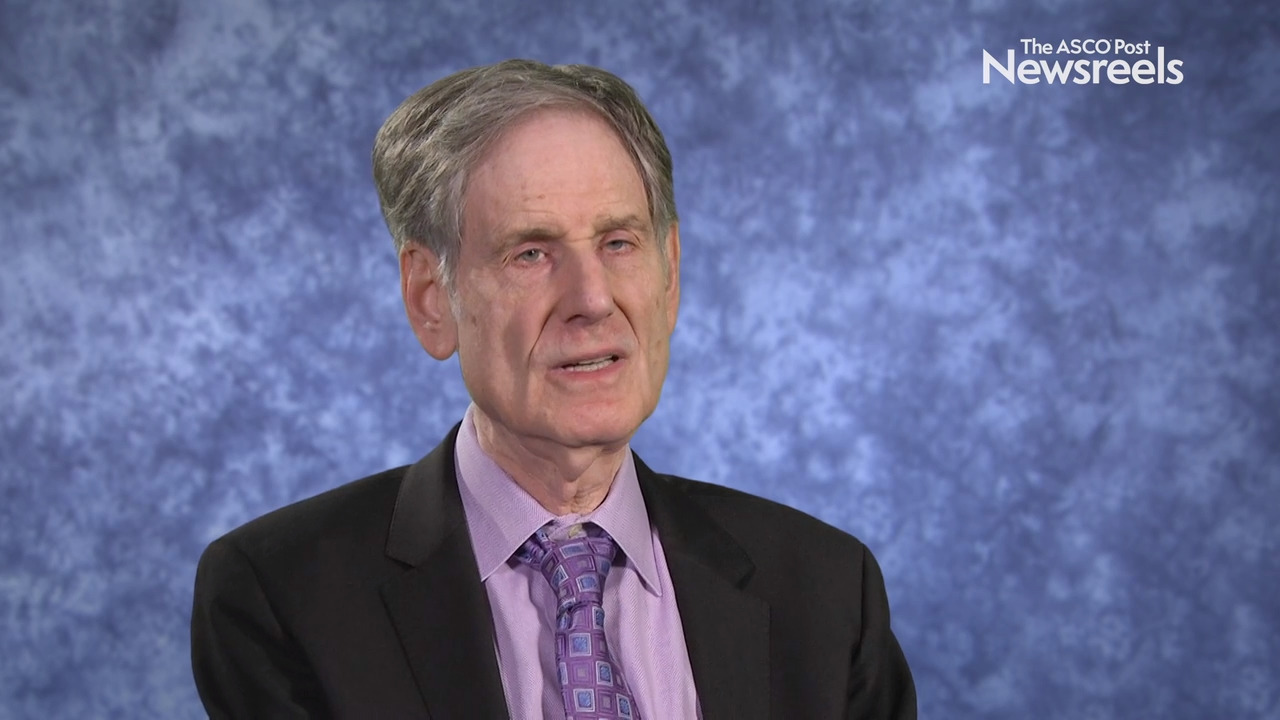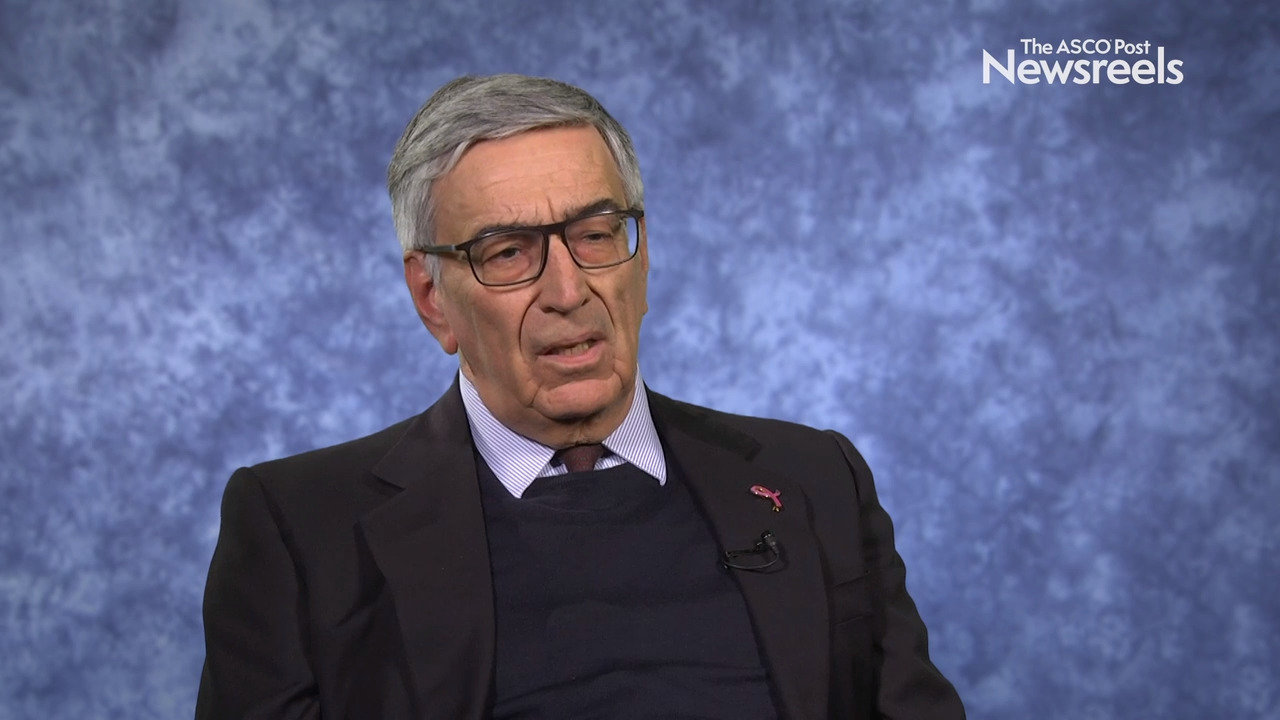Hope S. Rugo, MD, on Metastatic Triple-Negative Breast Cancer: Retrospective Analysis of PD-L1 Immunohistochemistry Assays
2019 San Antonio Breast Cancer Symposium
Hope S. Rugo, MD, of the University of California San Francisco Comprehensive Cancer Center, discusses a retrospective analysis on the effectiveness of the VENTANA PD-L1 SP142 assay, the Dako 22C3 assay, and the VENTANA SP263 assay as predictors of response to atezolizumab plus nab-paclitaxel in patients with metastatic triple-negative breast cancer (Abstract PD1-07).
Terry P. Mamounas, MD, MPH, of Orlando Health UF Health Cancer Center, discusses 10-year results from NRG Oncology/NSABP B-42, which showed that, for postmenopausal women with hormone receptor–positive breast cancer who have completed previous adjuvant therapy with an aromatase inhibitor or with tamoxifen followed by an aromatase inhibitor, extended treatment with letrozole improved disease-free survival (Abstract GS4-01).
Madeleine M.A. Tilanus-Linthorst, MD, PhD, of Erasmus University, reports data from the first randomized trial comparing MRI breast cancer screening with mammography in women with a familial risk. Because MRI screening detected cancer at an earlier stage, it might reduce the use of adjuvant chemotherapy and decrease breast cancer–related mortality (Abstract GS4-07).
Marie-Jeanne T.F.D. Vrancken Peeters, MD, PhD, of the Netherlands Cancer Institute, discusses an interim study analysis showing that ultrasound-guided core biopsies of the breast in patients with excellent response on MRI after neoadjuvant systemic therapy may not be accurate enough to safely select patients with pathologic complete response for omission of surgery (Abstract GS5-06).
Ralph R. Weichselbaum, MD, of the University of Chicago, summarizes a plenary lecture in which he presented data that could guide future clinical strategies: studies supporting the basis and classification of oligometastatic disease, including breast cancer; and basic and clinical data on radioimmunotherapy (Abstract PL2).
Luca Gianni, MD, of the Fondazione Michelangelo, discusses findings from the NeoTRIP trial on pathologic complete response to neoadjuvant treatment with or without atezolizumab in triple-negative, early high-risk, and locally advanced breast cancer (Abstract GS3-04).
